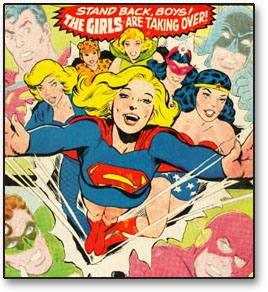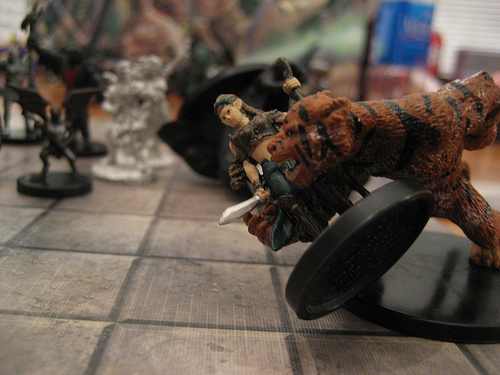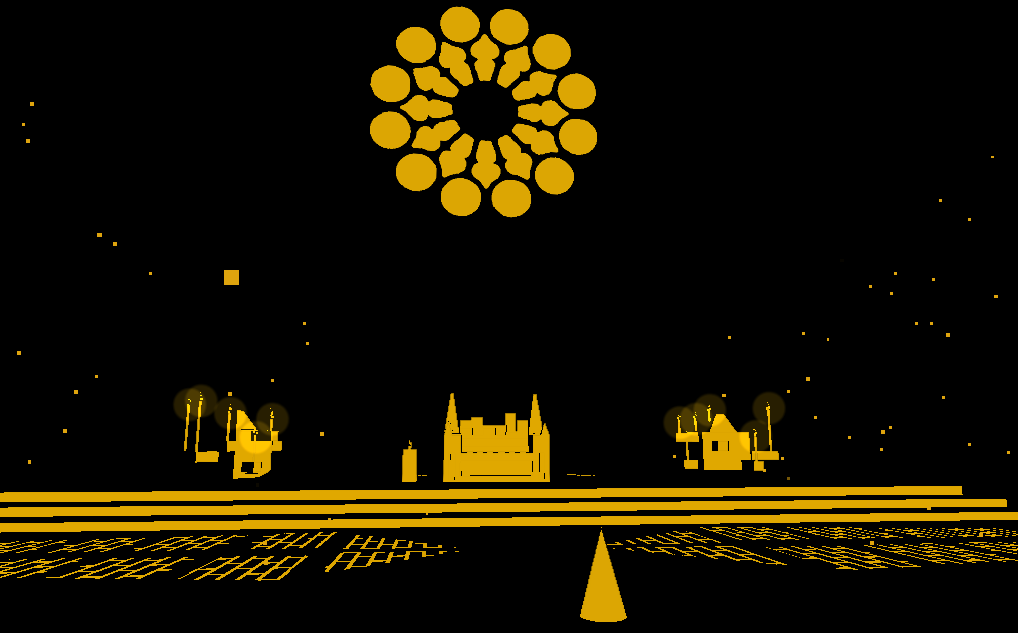“If your image of a computer programmer is a young man, there’s a good reason: It’s true,” begins this article on NPR. I hear this a lot, but I typically hear reasons for this that have nothing to do with the history of tech presented in this article. I usually hear something more along the lines of “women just aren’t interested in tech,” “or women aren’t intelligent enough,” or this, from the comments, “They are choosing not to get the related degrees in college, thus removing themselves from the potential pool of hires. You can’t hire something that doesn’t exist.”
The truth is, though, that many women are and have been interested in technology and math, as this article demonstrates. But, for this post I wanted to focus mostly on this quote:
“When they have been written out of the history, you don’t have great role models,” says Isaacson. “But when you learn about the women who programmed ENIAC or Grace Hopper or Ada Lovelace … it happened to my daughter. She read about all these people when she was in high school, and she became a math and computer science geek.”
Representation and role models are so important to me. We talk about this a lot here on Not Your Mama’s Gamer because we want to play characters that we feel represent us. I want young girls to see the role females have had in the tech industry, so they too can see it’s something they can do if they are interested in. So they can envision themselves in the role. For me, playing a female character in a video game can make me feel more involved in the story. (Sometimes too involved, as I felt when I played Tomb Raider.) I want to feel that, yes, I am also welcome in the world of video gamers. I want female children to feel this way, as well. I want to never again have to explain to the cashier at Game Stop that, yes, that game is really for me. I really intend to play that game.
And, it’s not just tech or video game, as I’ve written about recently, I think quite a bit about the representation of females in LEGO. (Well, let’s be honest here; I think about LEGO a lot in general.) But, I got so excited when they released the LEGO Research Institute. I want more of that. Some have questioned: why does it matter? Wouldn’t it be better if kids were just happy playing whatever gender or minifigs they have? For me, that’s fine, if that’s what the kid (or adult, in my case) wants. But, if young girls see female scientist minifigs, perhaps that will help open the door for them. They can then see themselves in that role. Rather than seeing male minifig after male minifig and thinking, “being a scientist might be cool, but I’m not sure I belong in that career.”
When I was way younger (I won’t tell you how long ago), I wanted to develop video games. I was working toward a computer science engineering degree. I was working in my own time, messing around with designs. No one ever told me I couldn’t do it. But, when I think back to my younger self, I get a little sad because now I can see the certainly tough, possibly even impossible, road I would have had to undertake to make that happen 20 years ago. (Ok, ok, it was 20 years ago, showing my age here.)
NPR’s story is about the erasure of females from the history of computer science. Writing women out of history (or the attempted writing women out of history) still happens, as I wrote about here. And, I would like to see people stand back from their preconceived notions of the world. If a female (child or adult) is saying “I want to be in tech; I want to work in video games,” maybe we can give that girl role models instead of constant stubborn excuses for why she “can’t” or “doesn’t want” to do that.




